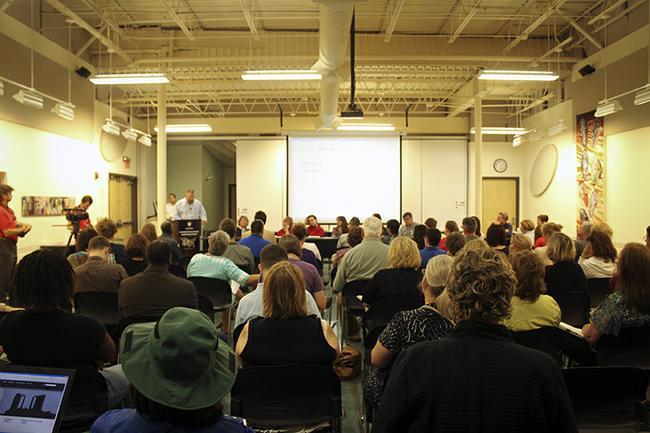
Sophomore Sara Hooshmand has seen the effects of drug abuse from both a personal and community perspective; from her experience, Hooshmand plans to raise awareness about heroin abuse at MU.
During her senior year of high school in Jefferson City, there were 13 reported heroin overdoses, with numbers on the rise ever since. Last September, her friend Cody Marshall died due to a heroin overdose.
“After his death, I’ve taken more notice of the rapidly evolving drug problem in the academic atmosphere, which has been brushed aside for far too long as part of the college experience,” Hooshmand said. “The effects of this experience will last far longer than the time we’re in school.”
An emergency town hall meeting entitled “Heroin: A Community Perspective” was held in May to address Columbia’s growing heroin problem. In the past year, two Columbia men have died due to heroin overdose, and police have seen at least a dozen near-overdoses in the community, according to the meeting.
Heroin has become the fastest-growing type of narcotics case in the past six months in Columbia, Boone County Circuit Judge Christine Carpenter said.
A recovered heroin addict named Emily, an MU student who chose to withhold her last name, spoke at the town meeting. Emily said she dabbled in all sorts of drugs, but got hooked on prescription drugs her sophomore year of high school.
She was arrested at age 16 but did not start using heroin until her senior year of high school. After her first time insufflating heroin, she began using it no more than seven times daily. She recalled having no relationships with her family, having no friends and choosing not to attend her classes at MU.
“It’s not a crime to be an addict,” Emily said. “It’s a crime to possess, produce and distribute it.”
After a year of trying to quit, she was finally able to kick the habit after her second arrest and four months of rehabilitation.
In order to help students like Emily who struggle with addiction, Hooshmand plans to raise awareness of the use and abuse of heroin at MU by collaborating with existing organizations such as the MU Counseling Center, the Wellness Resource Center and the Residence Halls Association. She plans to create brochures and bulletin boards with information to help and inform students.
“I would like to see Res. Life (become) certified with [Mental Health First Aid](http://www.mentalhealthfirstaid.org/cs/program_overview/),” Hooshmand said. “This will better equip our campus leaders in public identifying, understanding and responding to signs of mental illnesses and substance abuse.”
After these first steps have been accomplished, Hooshmand wants to provide freshmen with literature, problem-based solutions and lectures through Freshman Interest Group courses. The literature and problem-based solutions will include how to confront roommates, friends and family through drug education; prevention; safety; and healthier alternatives to stress.
The lecture-based portion of the program will incorporate the resources of [Project HOPE (Heroin Overdose Prevention Education)](http://www.jeffcityhope.com/), bringing in guest speakers who have either personal or professional experience with substance abuse and mental health resources.
“Hearing someone who has personally been through many of the issues that students face will alleviate the taboo association with substance abuse and mental health issues,” Hooshmand said.
Hooshmand’s long-term goal is to start a Narcotics Anonymous chapter at MU to establish a recovery network where students could engage with and learn from fellow peers going through similar circumstances.
“We must do our best to eliminate substance abuse and the ties of depression and anxiety of a college student,” Hooshmand said. “I believe through the awareness, education and rehabilitation of these issues, we can work collectively toward rebuilding a community where the causality and silence of drug and mental health issues has grown out of control.”